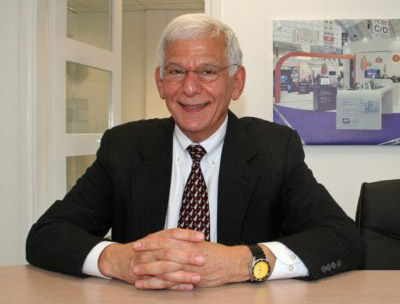As a former stockbroker with EF Hutton on Wall Street a lifetime ago, I learned how to “pitch” stocks to prospects. My stint at Hutton lasted only 7-months (6 months of intense sales training and one month on the job as a stockbroker) because I failed miserably as a telemarketer. And even though EF Hutton’s advertising slogan at that time was “When EF Hutton talks, people listen!” when I spoke, prospects cursed and hung up on me!
Once I became a broker, I couldn’t sleep at night and started losing my hair. To this day if someone gave me a list of 100 moving company prospects to call to pitch my IOMI® online office moving training seminar, I’d go to lunch and never return. I’m terrible at cold calling—which is a big part of many new business development strategies. However, give me a product or a service I believe in, have the prospect contact me first by email or phone, and I can sell it and close the deal.
How can that be? What difference does it make who initiates the contact—the sales person or the prospect? I recently discussed this with Larry Dillon, president and owner of Wendover and InsightPRM software. Larry agreed with me that there is a huge difference between the type of person who loves prospecting and “dialing for dollars” versus one who fears and hates it. Larry would know because his company, https://wendovercorp.com/, is the most successful lead generation company in the USA, and he talks to sales people every day.
When I started my moving company, after hiring my first driver and two helpers, I immediately hired a person to mine the leads I procured. She didn’t mind calling a company “cold,” telling them she understood they were moving, and asking them if we could submit a bid. I did not contact them to set up an appointment until—and unless—she got them to the point where they were ready for an onsite estimate. I liked meeting with them, preparing an estimate, and making a sales presentation. After the sale, it was she and not I who followed up a week later to see if we got the move or to inquire if they had any questions.
After meeting thousands of sales people over the past 40 years, I have found that most successful sales people are just like me. If they’re great at selling, they’re weak at prospecting and cold calling. Conversely, most great telemarketers would flounder at selling especially outside sales. Apparently, the two just have different psyches or personalities.
Smart managers recognize the difference and place the right people in the right roles; if they force their sales people to prospect and cold call, they’ll probably lose a lot of business opportunities.
Another point that often is overlooked: if a sales person spends a lot of time mining a lead—writing emails and making follow up phone calls—and finally gets an appointment to meet with the prospect to submit a bid, he or she will probably be weak and want to give the store away because they’re so emotionally involved. They know if they don’t get the job, they’ll have to go back and do what they loathe— “smile and dial” and mine more leads.
If, on the other hand, a separate telemarketer mines the leads, the sales person is not as emotionally involved because he or she hasn’t been working the lead. And, if the deal doesn’t close, it doesn’t matter because thanks to a telemarketer, there is a pipeline full of other companies who are ready to be sold and get an estimate. In this example, the sales person is typically strong and controls the customer.
To learn what the telemarketer should say when prospecting, please read my next blog entitled “WHAT TO SAY WHEN YOU COLD CALL A PROSPECT”.
Be sure to join our Group at https://www.linkedin.com/groups/12060567
For more information on our online office moving training, please visit
https://www.officemoves.com/training/index.html or call Ed Katz at 404.358.2172.










